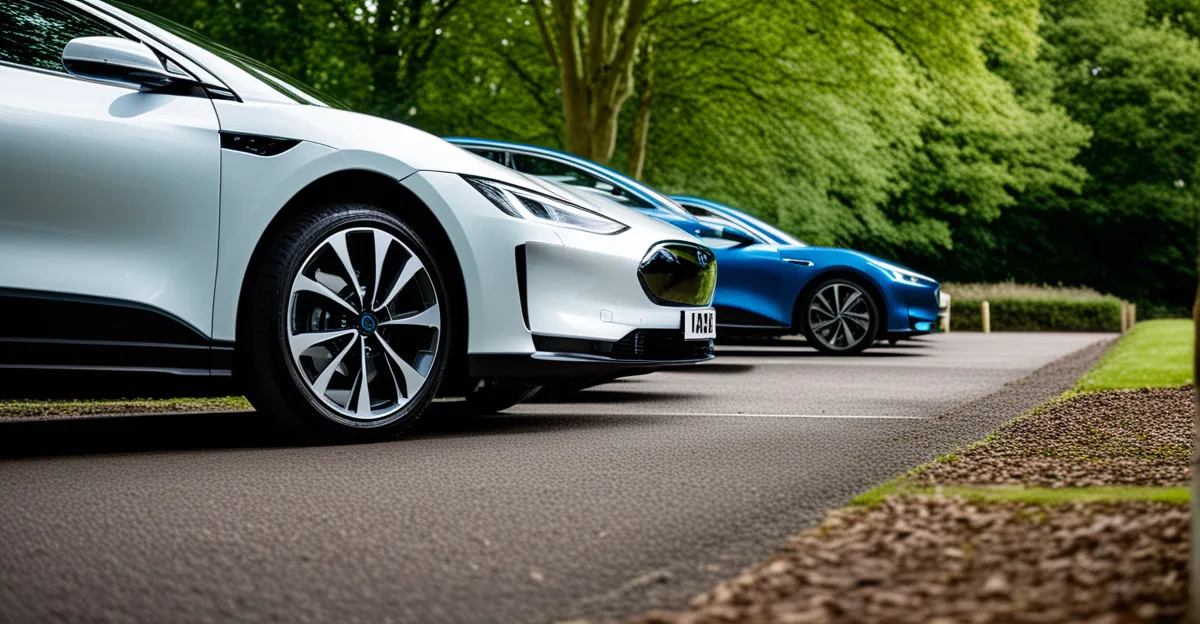Meeting the Growing Demand for Electric Vehicles in the UK
The UK electric vehicle demand has surged dramatically due to stricter emissions regulations and increasing environmental awareness among consumers. This rise is driven by government policies promoting zero-emission transport and changing buyer preferences favoring cleaner, more efficient vehicles. These shifts have put immediate pressure on the UK automotive industry response, compelling manufacturers to accelerate development and production of EVs.
UK automakers face both challenges and opportunities amid these market trends. On one hand, the need to redesign factories and upskill workforces demands significant investment. On the other, the growing UK EV market trends present a chance to innovate and capture global market share. To meet demand, companies are expanding electric model offerings and leveraging new technologies.
Also to see : Impact of Electric Vehicles on UK’s Automotive Industry
Key sector responses include strategic partnerships for technology sharing, ramping up battery production, and enhancing supply chains. Automakers are also adapting marketing strategies to address consumer concerns about range and charging infrastructure. Overall, the automotive industry response is focused on aligning product portfolios with evolving market demands to capitalize on the accelerating shift toward electric mobility.
Manufacturing Transformations and Supply Chain Shifts
The UK automotive manufacturing sector is rapidly evolving to meet the soaring UK electric vehicle demand. Traditional production lines for combustion engines are being overhauled to focus primarily on electric drivetrains. This manufacturing adaptation requires substantial retooling of factories and integration of new technologies designed for EV assembly.
Also read : How Are Technological Advances Shaping the Future of the UK Automotive Industry?
Central to this transition is the scaling of battery production, a critical component whose supply chain depends heavily on sourcing minerals such as lithium, cobalt, and nickel. The EV supply chain faces challenges around securing these materials sustainably and locally. To address this, manufacturers and policymakers are encouraging the localisation and reshoring of supply chains to reduce dependency on imports and improve resilience.
Expanding domestic battery manufacturing capabilities is vital, as it not only supports production volume but also enhances the UK’s position in the global EV market. Measures such as investments in advanced battery technology and strategic partnerships with mineral suppliers illustrate the sector’s proactive response to evolving demands. This transformation balances immediate production pressures with long-term sustainability goals, positioning the UK to thrive amid growing UK EV market trends.
Infrastructure Upgrades to Support Electrification
Supporting the surge in UK electric vehicle demand requires substantial expansion of the EV charging infrastructure UK. Nationwide, efforts focus on increasing public and private charging points to improve convenience and reduce range anxiety. Both fast chargers along highways and slower chargers in urban areas are essential for meeting diverse user needs.
A major question is: How is grid capacity being addressed to sustain growing energy consumption from EVs? The answer centers on upgrading the electrical grid to handle higher loads. This involves modernising distribution networks and integrating smart grid technologies to balance demand efficiently. Improvements in grid resilience ensure reliability despite increased charging activity.
Public and private investments play a crucial role in infrastructure development. Government grants and private sector partnerships fund charging network expansion, accelerating accessibility. This collaboration also targets rural and underserved regions, promoting equitable coverage.
In summary, continuous enhancement of the EV charging infrastructure UK combined with strategic grid capacity upgrades is vital to support ongoing growth in electric vehicle adoption and ensure a seamless transition to cleaner transport.
Workforce Impacts and Skills Development
The shift to electric vehicles strongly influences automotive jobs UK by redefining required skill sets. Traditional roles focused on internal combustion engines are evolving to demand expertise in electric drivetrains, battery technology, and software integration. This transformation has created an urgent need for effective EV skills training tailored to emerging technologies.
How are workforce transitions managed? Industry and government partnerships collaborate on comprehensive retraining programs, for example, apprenticeships and upskilling courses. These initiatives aim to prepare existing employees while attracting new talent into the EV sector, supporting a seamless workforce transition without significant layoffs.
The impacts extend across regions, with automotive hubs adapting training to local industry needs. Upskilling empowers workers to remain competitive and increases job security amid evolving production demands. Additionally, the creation of new roles in research, testing, and battery manufacturing diversifies career pathways within the sector.
Emphasising continuous learning, these workforce development efforts address skills gaps, ensuring the UK’s automotive industry can sustain growth as it meets rising UK electric vehicle demand and adapts to the rapid evolution in UK EV market trends.







